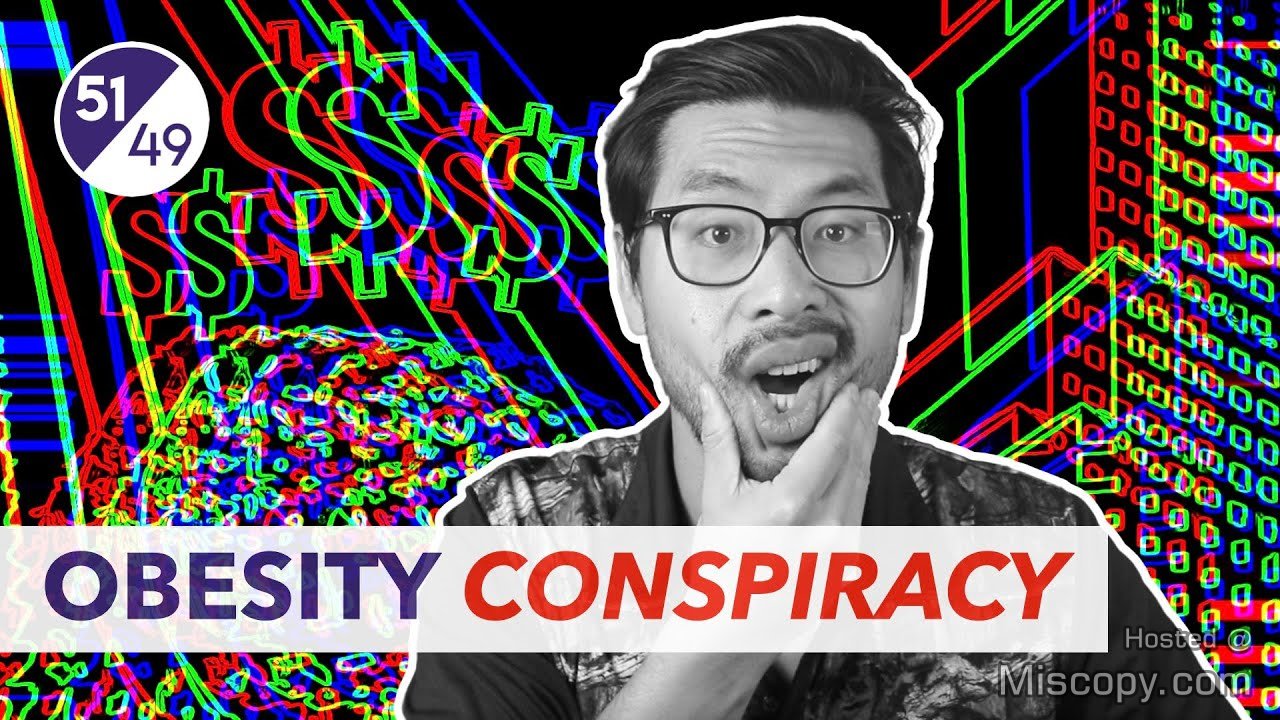In this Q&A video, the founders of Analyze and Optimize cover a wide range of topics, including gut dysbiosis, thyroid health, supplementation, the effects of polyunsaturated fats, mental performance optimization, nootropics, methylene blue, kidney stones, convincing others about the negative effects of PUFA, vegetable oils and sugar from a historical perspective, fat loss on high-carb diets, the effects of low-carb diets and ADHD, the relationship between serotonin levels and cognitive functioning, weightlifting and fasting, the niacin flush, water and mineral intake, and muscle-building. They provide insights and recommendations based on their own experiences and the available evidence, emphasizing the importance of individual experimentation and personalized approaches to achieve optimal health and performance.
Furthermore, they discuss the importance of consuming adequate protein and carbohydrates for muscle building, as well as the potential benefits of saturated fats for testosterone levels. They also give suggestions for optimizing metabolism and energy levels, addressing concerns about seed oil consumption and candida overgrowth. They also discuss the effects of dietary isoflavones, the decline in male testosterone, and the impact of factors like environmental pollutants and cultural expectations on hormone levels. They provide insights on various other subjects, including the potential harms of marathon running, the effects of smoking and vaping, and the potential damage caused by polyunsaturated fats. They touch on theories related to obesity, such as the SCD-1 gene theory, and emphasize the importance of sharing ideas and information in the field.
Detailed Description
Dalton and Jack from Analyze and Optimize answer the question of how to diagnose and fix gut dysbiosis. They explain that the microbiome is still not well understood, but symptoms can be a good indicator. High serotonin symptoms may indicate bacterial overgrowth or dysbiosis, and gut issues like diarrhea or constipation can also be a sign of a disordered microbiome. They suggest exploring symptoms first and then, if necessary, confirming with tests. They also mention some simple ways to modulate the gut microbiome, such as consuming mushrooms, carrot salad, different types of fibers, and sulfur. They emphasize the need to experiment and see if there is a positive response to these interventions.
They then go on to discuss the impact of a ketogenic diet on thyroid health. While it is possible to maintain thyroid function on a keto diet, optimization may not be achievable without carbohydrates. They suggests eating more fat, avoiding excessive protein, and focusing on saturated fat instead of polyunsaturated fat. They also advise against extended fasts.
The next question addresses the best way to supplement Vitamin D3, with the speaker leaning towards the oral route but acknowledging the need to consider the quality of the supplement. Magnesium, calcium, and vitamin K2 are recommended as important cofactors. The speaker also mentions the option of topical supplementation if oral supplements are not available or cause side effects. The section ends with a discussion on the health of the Inuit people and the lack of data on their thyroid function.
The guys then discuss the potential negative effects of consuming high amounts of polyunsaturated fats, especially in the form of seafood. They mention that while a low-carb, high-pufa diet may be associated with cardiovascular disease and stroke, it’s likely that suboptimal thyroid function and other factors also play a role in these health issues. They suggest that incorporating thyroid gland into the diet can have a positive impact, but it’s not the whole story. In regards to postural orthostatic tachycardia syndrome (POTS), the speaker suggests that the dysfunctional immune system could be a contributing factor and recommends immune-supportive interventions such as vitamin D, aspirin, and maintaining gut health to address chronic inflammation. Finally, the speaker advises eliminating polyunsaturated fatty acids (PUFA) from the diet as a way to handle and eliminate them from the body.
They also discuss the potential deleterious effects of consuming a large amount of polyunsaturated fats at once, suggesting that slowly introducing fats into the bloodstream may be a better approach. They recommend a low-fat diet with long-chain saturated fats as replacements for polyunsaturated fats, as they have therapeutic benefits for certain liver diseases caused by excessive consumption of polyunsaturated fats. They also suggest incorporating aspirin and vitamin E to counter the inflammatory effects of polyunsaturated fats.
In another question about blood sugar control, the speaker explains that prolonged low-carb diets can lead to physiological insulin resistance and elevated blood glucose levels. They recommend cutting out seed oils and certain meats, as they may have damaging effects on pancreatic beta cells. Additionally, they recommend protecting beta cells and keeping the diet relatively low in carbs.
When discussing ways to optimize mental performance, yhey emphasize the importance of being in a relaxed and alert mental state, rather than a manic and aggressive one. They recommend caffeine as well as thiamine (vitamin B1) to enhance mental clarity and focus. Lowering serotonin levels can also be beneficial, as it increases dopamine and promotes a relaxed state of mind. The speaker also mentions optimizing energy metabolism with the use of methylene blue and following a balanced diet. Additionally, they briefly mention a product called Gorilla Mind Rush, which they found to be effective in enhancing mental performance.
Next, the discussion revolves around different nootropics and their potential benefits for mental performance. They mention Gorilla Mind Rush and its combination of ingredients that can provide a significant performance boost. The mention of l-tyrosine, a dopamine precursor, is also made as it is known for its positive effects on mental focus. The conversation then shifts to the topic of maple syrup and raw honey, where it is suggested that while maple syrup could be good and unprocessed, raw honey is backed by research and contains unique compounds that make it a superfood. The peatiest animal in terms of diet is considered to be the black bear, which consumes lean fish, honey, fruit, and tubers. The conversation concludes with a mention of the pygmy marmoset, known for its tiny and cute appearance, as the peatiest animal in terms of “vibe.”
When addressing a question about the effects of taking methylene blue and the color of urine, they explain that if urine turns blue when taking methylene blue, it means that the substance is being wasted and not having the desired effects. However, if urine remains clear, it indicates that the methylene blue is being actively taken up into tissues and exerting its positive effects.
The speaker also discusses the main driver of kidney stones, dismissing the idea that spinach is the culprit and suggesting that seed oils may play a role. They mention a Twitter thread by another individual that delves into the potential connection between seed oils and kidney stones. Lastly, the speaker responds to a question about how to convince others about the negative effects of polyunsaturated fatty acids (PUFA) and the benefits of sugar. They caution against simply regurgitating information without understanding it, but suggest explaining that PUFA can turn into toxins in the body when consumed in excess.
When discussing the use of vegetable oils and sugar from a historical perspective, they points out that vegetable oils require extensive processing in factories, unlike animal oils or oils from natural sources like avocados or coconuts. On the other hand, sugar has been consumed for a long time without causing significant health issues until the emergence of vegetable oils. However, they also acknowledge that this argument may not be convincing to highly intelligent individuals who can understand more complex explanations.
In terms of losing fat while following a high-carb diet, they explain that fat loss does not necessarily require a large amount of free fatty acids in the blood. Equating calorie and protein intake between different diet styles can lead to similar fat loss regardless of fat and carbohydrate consumption. They also mention that certain substances like aspirin and niacinamide can limit lipolysis, but they do not completely prevent the liberation of free fatty acids in the blood.
Then, they discuss the claim that people who eat low-carb diets eventually have negative experiences such as brain fog, weight gain, and hair loss. The speaker disagrees with this claim based on their own experience and suggests that there may be other factors at play such as lifestyle, environment, sleep, and supplementation. They emphasize that diet is an important component of health, but not the sole determinant. Secondly, the speaker discusses ADHD and acknowledges that it is a heterogeneous condition with various symptoms. They suggest that elevated serotonin levels and metabolic issues in the brain, combined with systemic stress, may be contributing factors. They recommend considering dietary changes and the use of substances like methylene blue to improve brain energy metabolism.
They guys proceed to discuss the potential effects of high serotonin levels on digestive health and cognitive functioning. They suggest that elevated serotonin levels can lead to feelings of foggy thinking and decreased attention. To address this, the speaker recommends improving systemic and brain energy metabolism through methods such as methylene blue and caffeine. They also touch on the topic of the Randall Cycle, explaining how the interaction between carbohydrate and fat oxidation influences the body’s fuel usage. The speaker argues against the use of the Randall Cycle as an argument against carbohydrate consumption, as it doesn’t make logical sense. Furthermore, they provide their perspective on starting powerlifting, emphasizing the need for efficient and balanced training approaches rather than exhaustive workouts. They emphasize low volume and high frequency for better form and recovery.
They then address the question of whether fasting is still recommended after learning about the pro metabolic approach to nutrition. The speaker acknowledges that fasting can help with weight loss and health improvement but notes that it’s relative and depends on individual context. They caution against the potential negative effects of fasting, such as increased cortisol and stress hormones, and suggest a more personalized and optimal approach.
Next, they share their opinion on the niacin flush, stating that it is completely avoidable by taking niacinamide instead of niacin. They explain that niacinamide can boost NAD levels better than niacin and doesn’t cause the histamine reaction associated with the flush.
After that, they discusses the importance of water and mineral intake. They mention that while water is essential, many people are not getting enough minerals in their diet. They advise focusing on mineral intake and listening to the body’s thirst cues rather than following a specific water quota. They also suggest using a reverse osmosis filter and mineralizing the water if necessary. Additionally, they mention that for muscle-building, diet and training play a more significant role than specific food choices.
They emphasize the importance of consuming adequate protein, with one gram per pound of body weight being recommended. They also mention that carbohydrates are important for muscle growth as they stimulate muscle protein synthesis. Saturated fats are mentioned as having a positive effect on testosterone levels, which is crucial for muscle building. The speaker also shares their own diet, which includes around 350-400 grams of carbs, 180-200 grams of protein, and varying amounts of fat. They mention that avoiding foods high in polyunsaturated fats may be beneficial for testosterone levels.
The speaker also touches on the topic of tryptophan and serotonin, suggesting that the conversion of tryptophan to serotonin is not the main concern in decreasing serotonin levels.
When addressing the concern about consuming raw egg whites, they explain that it can bind up biotin and decrease its absorption. To combat this, the speaker suggests consuming raw egg whites at certain times and cooked eggs at other times to ensure an adequate intake of biotin. They also mention that the risk of salmonella is mainly associated with the egg white, not the yolk, so consuming raw egg yolks is generally considered safe.
The speaker also discusses the acidity of orange juice and its potential impact on dental health. While acidity can promote cavities, prolonged exposure to high levels of acidity caused by bacterial overgrowth in the mouth is more concerning. The speaker emphasizes the importance of maintaining good oral hygiene and mentions that certain vitamins, such as vitamins A, D, K2, are crucial for dental health. In response to a question about ancestral diets, the speaker advises against basing dietary choices solely on speculation and suggests considering genetic tests for a more targeted approach.
Then they respond to a question about steps to take to maximize metabolism and health when dealing with seed oil consumption and fatigue. While acknowledging the complexity of the issue, the speaker recommends reducing seed oil intake and focusing on a lower fat, vitamin E, and longer chain fatty acid diet. They also suggest burning carbohydrates and using interventions like caffeine and thyroid hormone for energy and weight loss.
Another question is addressed regarding potential candida overgrowth. The speaker advises getting a stool test to confirm candida and suggests focusing on proper energy metabolism, immune system function, and regular bowel movements. They mention the possibility of using the flowers of sulfur for fungal overgrowth and maintaining a pro-metabolic approach, rather than cutting sugar, to support the immune system.
They mention that probiotics may have a minor impact on health issues, but shouldn’t be relied upon as a sole solution. The speaker then discusses the estrogenic effects of dietary isoflavones, specifically in unfermented soy products. They highlight that while soy doesn’t lower testosterone, it does have estrogenic effects on the body’s cells and estrogen receptors. The speaker suggests minimizing consumption of soy products and monitoring symptoms such as digestive distress and low libido. They also touch on the decline in male testosterone, attributing it not only to factors like microplastics but also to a lack of purpose and the use of SSRIs.
They mention the consumption of polyunsaturated fats instead of saturated fats, bacterial overgrowths that promote serotonin, exposure to plastics and other environmental factors, and the impact of cultural expectations and behaviors. The speaker also suggests that excessive pornography use and lack of connection with a female partner can affect testosterone levels. They emphasize the importance of having a sense of purpose, accomplishment, and a strong family unit in maintaining healthy testosterone levels.
They also discuss their experience with taking too much thyroid and the negative effects it had on their anxiety. They then provide advice on budget-friendly and nutritionally complete diets, mentioning options such as ground beef, eggs, milk, coffee, and white sugar. They caution against using Teflon pans due to the high fluoride content and suggest alternatives like cast iron (although not optimal in the long run) or ceramic pans. They also mention the negative environmental impacts of Teflon and recommend watching a documentary on the topic. The speaker concludes by expressing their opinion that frequent running may do more harm than good and suggests alternatives like walking and high-intensity interval training.
They specifically express their dislike for marathons and extended aerobic exercises, stating that they can lead to prolonged inflammation and stress. They argue that marathon runners who consume a lot of carbohydrates tend to be skinny, while sprinters like Usain Bolt, who are muscular, are faster. The speaker believes that short bursts of intense exercise, like sprinting, are more optimal than long-distance running.
Moving on to the topic of smoking, they mention that while smoking pure tobacco or pure weed may not inherently damage the lungs, weed can have negative effects on hormones and the brain. They also suggest that daily weed use can dampen motivation and turn someone into a “beta male.” In contrast, the speaker shares their personal experience with vaping nicotine, stating that it hasn’t caused any negative effects on their lungs and has even benefited them as a nootropic. However, they acknowledge that the safety of vaping is still uncertain. They conclude by discussing the potential harm of smoking cigarettes and experiencing lung issues, but note that they’re unsure if filters and papers are contributing factors. Overall, they suggest that while smoking and vaping may have their own risks, the negative effects of weed make it the worst option among the three.
Then, they discuss the potential damage caused by polyunsaturated fats found in vegetable oils. They explain that these fats make tissues more susceptible to damage, similar to how alcohol can damage the liver. The speaker also challenges the notion that pure tobacco is a carcinogen, stating that animal studies have not shown it to cause cancer on its own. They suggest that smoking organic tobacco in a ceramic pipe may have minimal harm and potential benefits.
The speaker also mentions the SCD-1 gene theory of obesity, which suggests that saturated fats promote leanness by increasing reactive oxygen species in adipose tissue. They discuss the Croissant diet, where individuals eat mostly croissants and butter, claiming that it promotes weight loss. However, they express some skepticism about the theory and its limitations.
At the end, the speaker discusses the theory that fat cells burn glucose and produce less reactive oxygen species than polyunsaturated fats (PUFAs). They also mention that feeding high levels of omega-6 fats and adding omega-3 fats can actually make animals leaner, suggesting that the balance of these fats in the body may influence obesity. They return to the SCD-1 theory, which suggests that people with more of the SCD-1 enzyme in their fat cells tend to be more obese. However, they point out that there may be other mechanisms at play and that more research is needed to understand the full drivers of obesity. The speaker concludes by expressing support for the sharing of ideas and information in the field.


